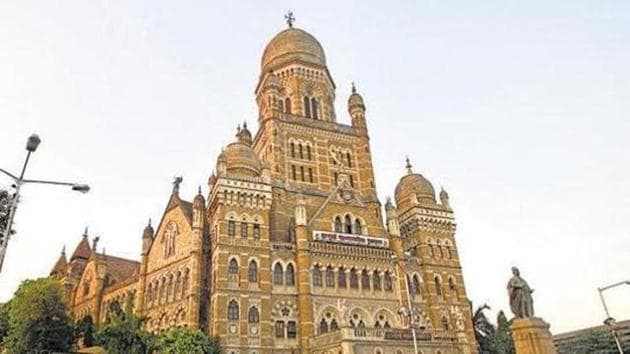‘Societies with sewage plants will have to use them’: BMC
Municipal commissioner Praveen Pardeshi directed the Development Plan (DP) department to check all housing societies whose builders received the permission to construct their project on the condition of building an STP and reusing its treated water, and verify if they actually use their treated water.
With the impending medium-to-long-term water crisis faced by the city in mind, the Brihanmumbai Municipal Corporation (BMC) has decided to ensure that the societies use their sewage treatment plants (STP) on the basis of which they were given redevelopment permissions.

It has been calculated that the city will need 30% more water by 2021 and 41% more water by 2031 (in comparison to its present consumption of 3,750 MLD).
Municipal commissioner Praveen Pardeshi directed the Development Plan (DP) department to check all housing societies whose builders received the permission to construct their project on the condition of building an STP and reusing its treated water, and verify if they actually use their treated water. If found otherwise, the BMC has decided to enforce use of the STPs on these housing societies.
The commissioner has also directed that no bulk users will be supplied with fresh water for non-potable purposes after 2022, once the BMC’s seven Waste Water Treatment Facilities (WWTFs) or STPs are ready for tertiary treatment of water. For this, the civic body recently sought a consultant to create a master plan for reuse of recycled water for the city.
Confirming the decisions, Pardeshi said, “Housing societies that have an STP constructed by the builder but do not use the facility to treat and reuse waste water for various reasons, will have to do so. BMC has begun inspection of all such societies. Also to rationalise use of pure water, bulk generators will have to use treated water from BMC’s STPs for bulk use such as washing and flushing, once the STPs are ready.”
Another senior civic official associated with the task said, “BMC gives builders concessions in construction if they construct STPs in the colony compound. However, a lot of housing societies do not keep the STPs functional due to high maintenance charge for the facility, and heavy electricity bills in running them.”
Under Mumbai Sewage Disposal Project II (MSDP), the BMC is upgrading seven WWTFs or STPs to further treat sewage water discharged from the city. Mumbai has WWTFs at Colaba, Worli, Bandra, Versova, Bhandup, Ghatkopar and Malad. Presently, these do primary treatment on waste water that has already been used in the city, and throw it into the sea. However, the BMC is upgrading these treatment facilities to be able to treat water at the tertiary level. Once upgraded latest by the year 2025, these facilities will treat 2,484 million litres of waste water per day (MLD).
While the civic body is looking for a consultant to draw up a master plan for reuse of water treated at the WWTFs, it has identified potential purchasers of this water. These include bulk consumers of water used for non-potable purposes such as the railways, metros, bus depots, car service stations, residential and commercial complexes, dying industries, pharmaceutical companies, mechanical industries, RMC plants, gardens, the race course, universities, colleges, and schools, public toilets, stadiums, fire brigade stations, malls, IT parks, airports, marriage halls and hospitals, who can reuse treated water for non-potable purposes.
As per its new master plan, the BMC will use 20% or 496.8 MLD of this treated water for non-potable purposes, such as gardening, car washing in garages, and flushing purposes.
However, Vinod Sampath, a real estate lawyer criticised the concessions in construction given to builders if they build STPs in the colony compound. “It is the builders who are profiting from concessions. But the cost of its maintenance is non-profitable for the housing society members,” he said.
The idea to give concessions to societies in property tax or water tax if they reuse water treated from their STPs, to compensate for the cost of maintaining and using an STP has been floated but also dismissed by experts.
Sampath said, “The concession will be negligible. There should be some way of holding even the builder accountable.”



